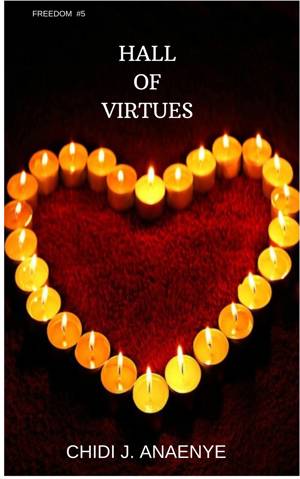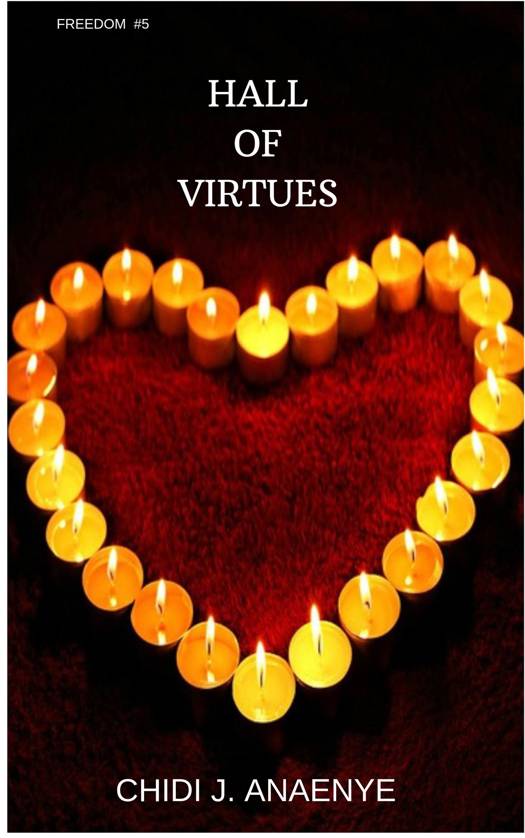
- Afhalen na 1 uur in een winkel met voorraad
- Gratis thuislevering in België vanaf € 30
- Ruim aanbod met 7 miljoen producten
- Afhalen na 1 uur in een winkel met voorraad
- Gratis thuislevering in België vanaf € 30
- Ruim aanbod met 7 miljoen producten
Omschrijving
Virtues are like flowers. Values are the fruits. A man planted an orchard to grow, blossom and enliven his own home. His neighborhood was enriched by its fragrance and nourished by its fruits. A man's virtues may primarily edify his own mind but the values serve to enlighten and empower his generation. Innate abilities and capacities are meant to be of greater benefit to the common good than for individual gain. Thus, one should live in service of another: to serve and not to be served. One must be fruitful by adding value to life. Virtue without value is vicious, vindictive and venomous. In other words, without a substance of value, a virtue degenerates to a vice. Vices are like weeds bearing false fruits. Of self-righteousness; there is always need to manage the vicious complication of pride by strictly inculcating the value of humility in productivity. By sufficiency of grace, vices are extirpated like weeds on the garden of human mind. By strong hands of the potter, the broken clay is crushed and remolded into utility vessel. On the workbench of the blacksmith, the rusted iron is melted and refined into an alloy or luminescent metal glowing from the heat of the furnace. That is transformation.
Virtues are like candles. Light is the value. As the flame glows, the oxygen burns and the wax melts down. Such is the virtuous. As his light shines, his blood flows and his life ebbs away. No candle can ignite itself. A glowing splint needs to be rekindled by the breath of air. A prepared mind needs to be renewed by the wind of grace; which unleashes the tongues of inspiration. A strong body works freely in obedience to the call to be fruitful. A pure soul answers peacefully the invitation of perpetual grace. A man lives solely to kindle a light in the darkness of existence. As he illuminates the void of the earth with his sweat and blood, he leads the way in the progressive work of creation. He arouses the desire for perfection and raises the human mind to the threshold of divinity. He opens the eyes of many but eventually closes his own eyes in death. He blesses the lives of others and yet dies in desperate need of grace. He heals the sick of their ailments but finally succumbs to his own syndrome. He uplifts the burden of affliction and yet labors under the yoke of his own cross. He saved others but couldn't save himself. Hence, his faith is renewed in the value of ultimate sacrifice. His memory is offered in flesh and blood. That is transubstantiation.
Virtues are like medals. An imaginary hallow encircles the head of a saint as a medal adorns the neck of a hero. Beyond the medal is the honor. Beyond the honor is the grace. There is an inward meaning for every outward sign. This ordains the sacramental value of laurels. There is a touch of grace in our everyday reality. Life is a miracle. Vision grants hope. Dreams are free. The man that walks in the path of freedom follows the lead of love to a glorious destination. The race of life is less about winning or losing. It's more about surviving. This is the utmost need: to survive. This is the trophy that awaits all that blazes the trail of life: a reward of eternal peace – joy and fruitfulness – as experienced by the immortal soul. Honour is like a seed of peace placed in the hand of the diligent worker, who then has more seeds to sow, more fruits to bear and more expectations to meet. Honor isn't praises. No one receives praise for unfinished works. Only in divinity is found the mark of perfection. Beyond the surface, virtues are represented as attributes or markers of character formation. In other words, virtues are projected as the truest identity of an individual. That which is unseen becomes the substance. And that which is visible becomes the shadow. That is transfiguration.
Hall of Virtues is the fifth of a twelve-volume book series on the theme of Freedom.
Specificaties
Betrokkenen
- Auteur(s):
- Uitgeverij:
Inhoud
- Taal:
- Engels
- Reeks:
Eigenschappen
- Productcode (EAN):
- 9781386971245
- Verschijningsdatum:
- 18/04/2019
- Uitvoering:
- E-book
- Formaat:
- ePub

Alleen bij Standaard Boekhandel
Beoordelingen
We publiceren alleen reviews die voldoen aan de voorwaarden voor reviews. Bekijk onze voorwaarden voor reviews.











